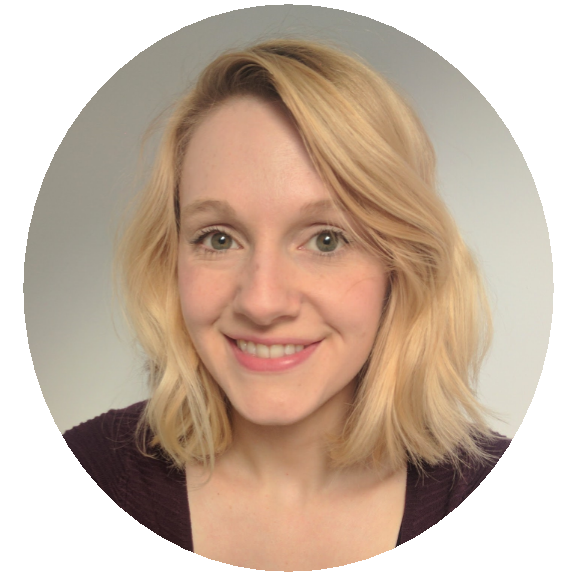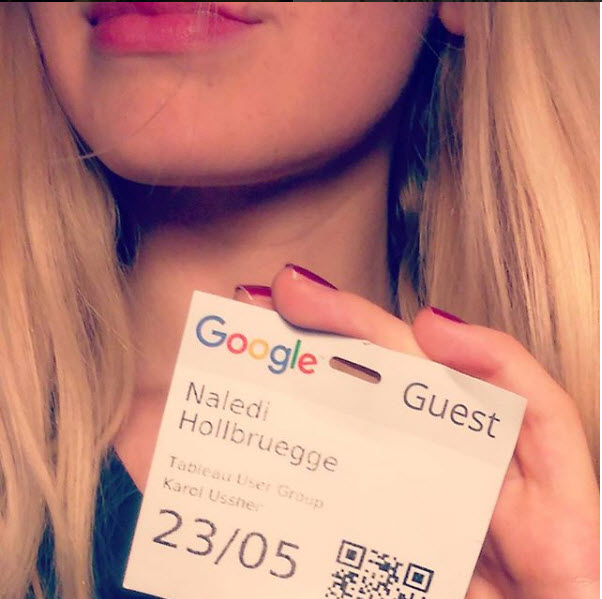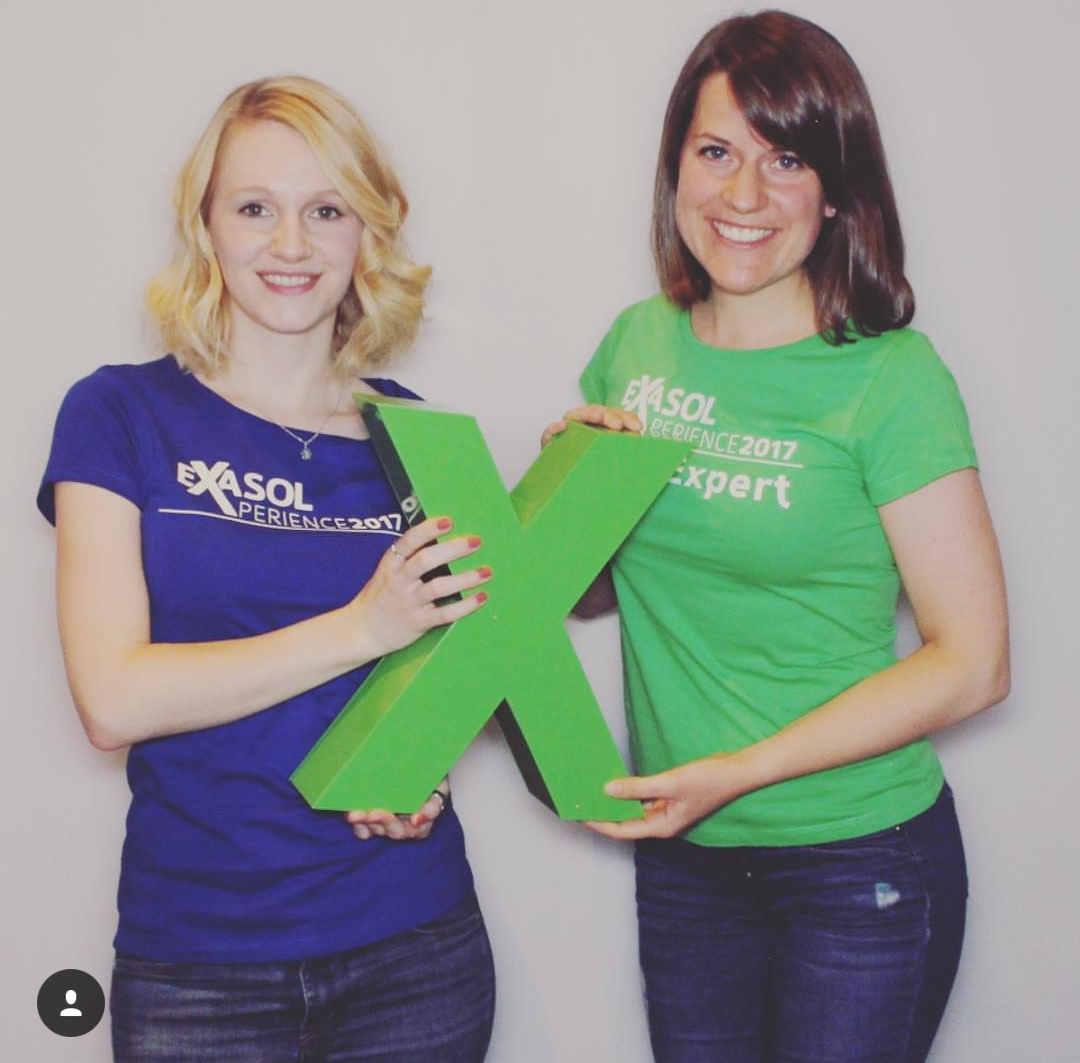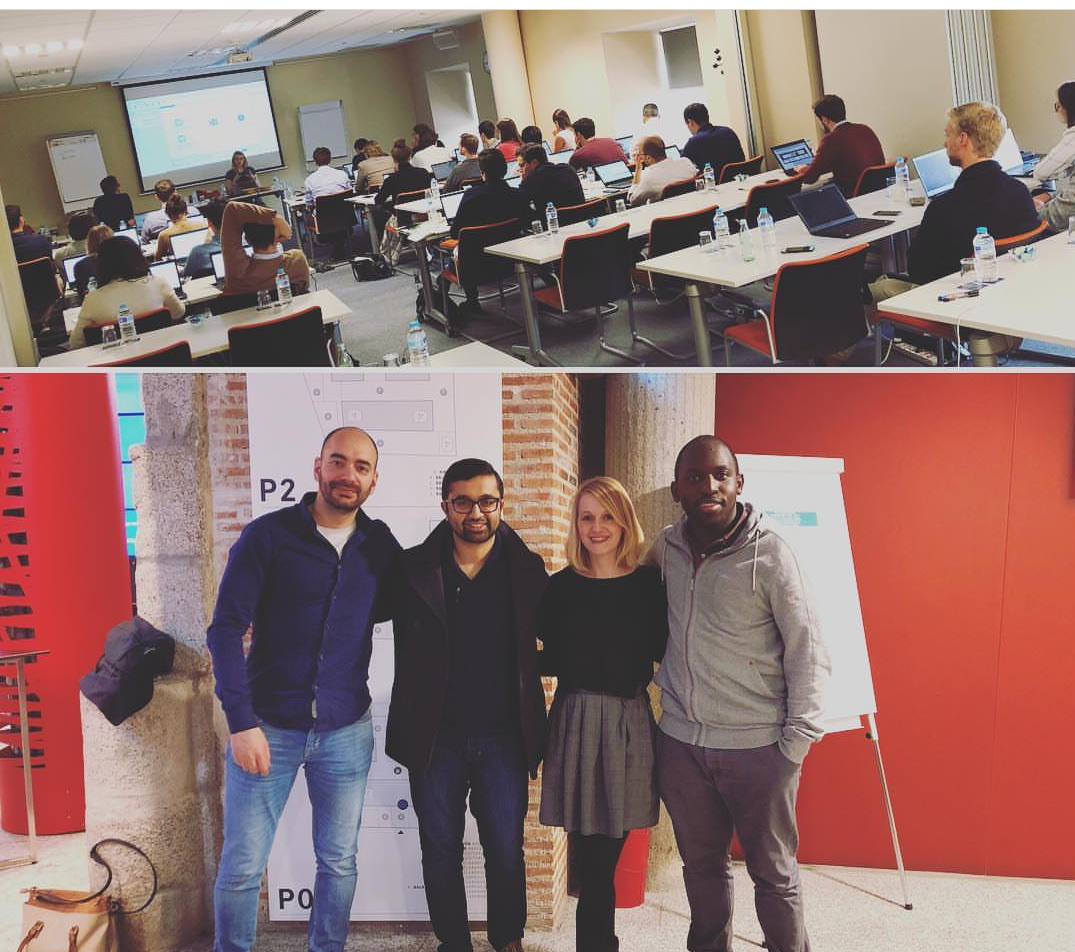You can find all existing blog posts as well as new posts on naledi.co.uk/blog


You can find all existing blog posts as well as new posts on naledi.co.uk/blog


During the four months of Data School training, it was the first time I looked forward to Mondays; but it was also a challenging experience. There were plenty of days I was exhausted from all the new things I was trying to take in, frustrated that I couldn’t solve certain problems, or get something to look a specific way. Attending sessions all day long, writing blog posts, and then practicing what you have learned, while also working on your own projects, is demanding. But I can’t remember it ever feeling unmanageable. The pressure was mostly intrinsic; fuelled by perfectionism and competitiveness. More importantly, it was an incredibly supportive learning atmosphere that provided lots of variety and taught me so many new things. If I could, I would repeat the experience without hesitation.
To be quite honest, I didn’t love any of my placements. As anticipated, they were just too far away from the direction I want to take with my career. Any type of analysis can be interesting, and so much is determined by the work environment, but I just couldn’t sustain motivation on answering business questions, which all had the same inevitable goal: How can this company make more money? The sort of work I want to do is much more people-oriented. Nonetheless, I am glad for the time I spent on each one of them and the variety of things they taught me.
The hardest thing about my two months with First Central were the internal politics happening around me, as the analytics department was restructuring. Consequently, I was also given very little to do. Eight hours can be incredibly long when you feel like you need to find a purpose for them, especially if it has taken you two hours just to get into the office. To fill my days, I started a deep dive into the predictive capabilities of Alteryx, teaching myself how to perform statistical models I hadn’t encountered before and how to share this knowledge with others in an easily understandable way.
 The following four months with Deloitte were also highly Alteryx focussed. This was the first time I worked on large Alteryx projects, consisting of so many workflows and files that my first action was to develop an Alteryx process that extracts all this information to show an overview of the workflow structure in Tableau. I got stuck into hacking Tableau and Alteryx .xml and scraping websites and loved being able to solve problems that were completely outside of what I thought I was capable of. However, I had little freedom to influence the projects I was placed on. Timelines, content, and often appearance, were agreed between managers and customers before I ever got involved. Consequently, I felt disconnected from the results and couldn’t take pride in my work. I had always thought that I might enjoy this type of consultancy work, and it was good to find out that it isn’t for me.
The following four months with Deloitte were also highly Alteryx focussed. This was the first time I worked on large Alteryx projects, consisting of so many workflows and files that my first action was to develop an Alteryx process that extracts all this information to show an overview of the workflow structure in Tableau. I got stuck into hacking Tableau and Alteryx .xml and scraping websites and loved being able to solve problems that were completely outside of what I thought I was capable of. However, I had little freedom to influence the projects I was placed on. Timelines, content, and often appearance, were agreed between managers and customers before I ever got involved. Consequently, I felt disconnected from the results and couldn’t take pride in my work. I had always thought that I might enjoy this type of consultancy work, and it was good to find out that it isn’t for me.
At Exasol I was more fully integrated as part of the company, rather than an external contractor, which was really nice. And while the team dynamics were challenging in this placement, there were many things I greatly appreciated about the work. The first was the absolute trust that was placed in me and my abilities by management. Having the CEO or the VP of Sales approach you with their questions, and then leave you to figure out how best to visualise this information, was a great change from the atmosphere I encountered at Deloitte. I learned enough about the company and the data that I could follow my own tangents and create dashboards that were appreciated because those in charge might not have thought to ask these specific questions. I learned that I like to stick with a project, see how it develops over time, how it fits into the structure of the organisation and if it makes a change to the way someone can do their work.

Moreover, working with Eva Murray was great. Not only because she supported my professional development and worked constantly to improve my experience of this placement but also because she involved me in her work with the Tableau community, which included my first trip to a Tableau conference (London 2017) and a joint presentation at the Exasol Experience Conference in Berlin (2017).
My final placement brought me to Hamburg, working with The Information Lab Germany. There were two main challenges with this placement. In previous projects, I would typically receive a task, then go away and work on it, and meet again with the requesters to discuss progress and show my results. With many customer meetings at TIL DE this work was structured in a very different way: sitting in a room together all day, answering technical questions on the spot and trying to solve problems live. Sorting out a complicated calculation is hard enough when you are experimenting with different approaches on your own. Solving it on the fly while a customer is in control of the keyboard is a totally different story.
Another large aspect of my work in Germany was covering our support desk. This is quite tedious and mostly unsatisfying work. It starts with trying to figure out what the problem even is, questioning why you would ever want to achieve such a result and then trying to come up with solutions. Or in many cases frantically trying to teach yourself all the intricacies of why a connection to a specific database is acting in a particular way, when you have never worked with this technology before. Both the new style of work and the support desk days are not how I would want to structure my working life, but they helped me to learn so much about Tableau I would never have known otherwise, so I am glad I had these experiences.
What I appreciated most about this placement was the appreciation and respect with which I was treated. I was asked for my opinions as an outsider, a Psychologist and a data visualisation expert, and my suggestions were always seriously considered and in many cases implemented. Given my previous experiences, where I often had to fight to be heard, this was a wonderful change and one I am very grateful to have experienced.

It’s sad to think that this is my last week with The Information Lab. I’ve met so many wonderful and talented people and will miss being around them regularly. But I got exactly what I wanted out of my time with The Data School: I now have a robust understanding of data and how to work with it. I can call myself an expert in both Tableau and Alteryx. I can confidently talk about data-driven decision making. I can tie all these things in with the concepts I have learned from Psychology and my passion for social research and helping people through evidence-based decision making. Now I look forward to the next steps, and to finding out how I will build on these skills in the future.
This time two years ago I didn’t realise the job I am doing now existed. I had just had my first contact with Tableau a few months earlier, through my job at Leicestershire County Council. Diligent applicant that I was, I had researched the two people who would interview me on LinkedIn before the interview. One of them was Rob Radburn, who highlighted on his profile that he was a Tableau Zen Master. I decided to download a trial version to get an idea of what that entailed and spent about half an hour with it, fairly helpless, but could at least show at the interview that I had done my research. I got the job, and relocated from Norwich to Leicester a week later.
At LCC I mostly spent my days doing qualitative analyses and creating surveys for other council departments. While I was working on topics I found important, it was also at times frustrating. For instance, when I was asked to derive insights that should shape council policy from a survey that had seven respondents. Or when I analysed opinions on a new policy, even though it was already signed off and going ahead, no matter what the public thought. I was on a temporary contract, hired through an agency, and after six months I was invited to apply for the permanent role that had become available. I realised I did not have a great desire to stay in Leicester and wanted to move back to London. I also felt that I wanted to build my skills quickly and wasn’t sure I would be able to achieve that in this role.
I have a BSc in Psychology and a MSc in Social and Cultural Psychology and I learned things in these degrees that have shaped my personality, the way I see the world and the way I do my work. I was fortunate enough to have a job at the council that was relevant to my studies, something that isn’t a given for recent graduates. I applied my knowledge of survey design to create consultations, performed basic statistics on results (like deciding you can’t draw conclusions from a sample size of seven) and wrote literature reviews for other departments on a variety of topics. Unfortunately, university often doesn’t equip you with very practical skills, which would be useful when you start a job like this, and had taught me a lot of theoretical and broad concepts, while not making me an expert at anything. I felt like I was held back by my limited knowledge of Excel and Tableau. I didn’t feel like I had an edge when applying for jobs, nothing that made me stand out amongst all the other graduates with limited work experience and I wasn’t sure how I was going to be able to get this edge, and considered taking out some time for additional training before moving back to London.
So when, after I told my supervisors that I was leaving, Rob took me aside and told me about The Data School, I got pretty excited. I could practice Tableau on my own when I had nothing else to do and had started to work on small Tableau tasks for printed reports. I noticed quickly that the days when I got to spend my time learning Tableau were my favourite, and I loved the thought that I would get much more time to do this.
The Data School was a unique opportunity to be paid to learn something that I already knew I enjoyed. It promised to equip me with the practical skills of becoming an expert in specific tools, which would allow me to effectively apply the knowledge I had gained at university.
While the selection of placement companies didn’t excite me – most of them being large, private organisations – I also knew how valuable this work experience would be and that it would help me to reach my career goals in the long term. Having to adapt to novel environments pushes you out of your comfort zone, and you can learn a lot when doing that. The ideal role will continue to develop you, no matter how long you have had it, and you are lucky if you manage to find such a role; but it is a special set of skills that get refined each time you start a new job. I did this five times in two years: Once when starting at The Information Lab and then again for each of my four placements. I expected this to be challenging but, as with all things challenging, enriching.
When applying for the Data School, Alteryx was just one of the things that came with the curriculum. I had no understanding of what it was and accepted it as something I would get through to be able to become a Tableau expert. I didn’t expect to develop the same level of passion for it as I had for Tableau. What I love now about Alteryx is that you have defined problems, with defined solutions. Tableau dashboarding is to an extent subjective; there are many ways you can answer the same question. In Alteryx there are many ways to get to the same solution, but there is only one answer you need to arrive at, and once you have you can lean back with the satisfaction of having completed the problem. Alteryx, much more so than Tableau, gave me an understanding of the wider field of data and it allows me to do things I never thought I could, and that I believed were only attainable for expert coders and those with a background in computer sciences.
These were my expectations, but what was it actually like going through The Data School? I’ve written a second post to share my experiences of the four months training and my four industry placements.